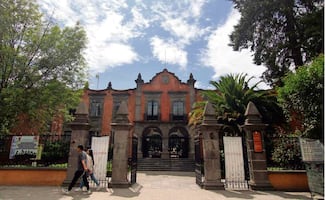Más Información

Harfuch informa avances del caso "El Limones"; UIF congela cuentas y descarta vínculos con Pedro Haces o sindicatos

Jueza cancela audiencia del caso María Amparo Casar; FGR deberá continuar acusación ante juez del Reclusorio Norte
With a five-station assembly plant to build models M2 and M3 , the Mexican automotive brand Zacua is prepared for the production of its electric cars. With their new plant, located in the area of Parque Industrial of Puebla 2000, the company will seek to produce a start-up series of 100 units .
According to Zacua , the urban mini-car, which can run at a speed of 85 km/h (53 mph) , will generate considerable savings for the driver , placing Mexico at the forefront of the electromotive industry with affordable prices.
On May 6, Zacua posted on their original Twitter page: " We will now start our operation in Puebla! This is a big step for the automotive industry and a step forward in making our cities cleaner."
Last Friday, the project was put into action with the inauguration of the factory, attended by governor Antonio Gali Fayad and the mayor Luis Banck Serrato .
The new MXN$80 million plant in Puebla will offer 35 direct jobs, which will be filled by female staff for the production of the vehicles. The new Zacua models contribute to the reduction of greenhouse gases, which could ultimately reduce pollution in major cities through technology that produces zero carbon dioxide emissions.
The models M2 and M3 will be manufactured with a 40% of Mexican parts and 60% of imported parts , but Zacua expects all pieces to be bought from Mexican providers by the end of 2019. 100 units are to be produced in the first year at a rate of one vehicle per day. Once the first batch is complete and the company is able to master the assembly process, production is expected to increase up to twice its initial efficiency by 2019. Their goal is to increase production to 2000 units per year .
Both Zacua models use an electric power source designed by the French firm Chatenet , and developed by Dynamik Technological Alliance , although future designs are expected to be developed by Mexican engineers. According to a video released on the company's Facebook page, models M2 and M3 will be equipped with 12ah rechargeable batteries and an electric motor with permanent magnets , as well as controllers featuring a GPS navigator and other applications.
The automotive battery to be used for the Zacua vehicles can be recharged in eight hours , allowing it to be driven for a distance of up to 160 kilometers (99.41 miles) . Jorge Martínez Ramos , chief executive of the company, commented that biennial checkup and maintenance is advised for the car since the battery’s lifespan diminishes whenever the vehicle reaches its maximum speed.
Pedro María Olaeta
, from Dynamik Technological, who also manages the technology department at Zacua, announced that the sale of the first units will be made online.
Let us hope that these first two electric models are successful in Mexico. It would certainly make a powerful statement about the competitiveness of Mexican industry in the world. The price for the M2 and M3 models will be of MXN$550,000 .
dm
Noticias según tus intereses
[Publicidad]
[Publicidad]












